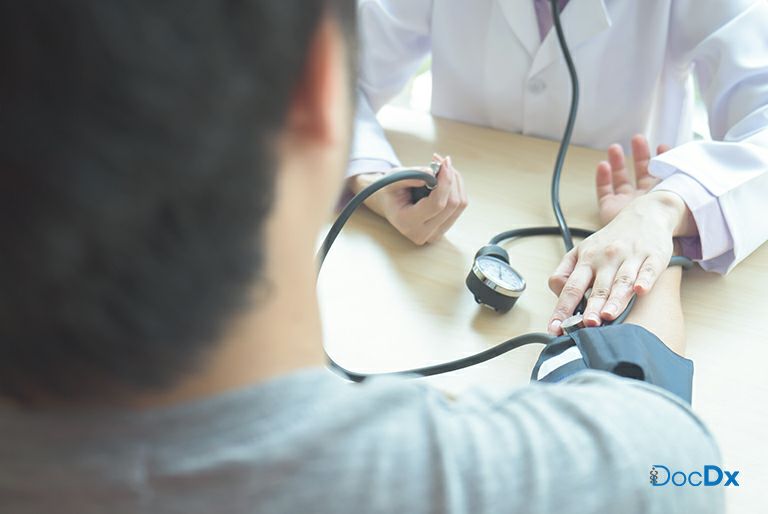Hypertension, often called the silent killer, affects millions worldwide without showing obvious symptoms. Many people don’t even know they have it until a serious health issue occurs. But here’s the truth: with the right lifestyle habits, routine screenings, and medical guidance, high blood pressure is manageable—and even preventable in some cases.
What Is Hypertension?
Hypertension, or high blood pressure, happens when the force of blood against artery walls is consistently too high. Doctors measure it using two numbers—systolic (top number) and diastolic (bottom number). A normal reading is usually below 120/80 mmHg, while anything above 130/80 mmHg is considered high.
Why Hypertension Is Called the Silent Killer
Unlike a cold or flu, hypertension doesn’t always announce itself with symptoms. You can feel completely fine while your arteries are quietly under pressure. Over time, this can damage your heart, kidneys, and brain—leading to life-threatening conditions. That’s why routine screenings and check-ups are so important.
Common Symptoms of Hypertension
Although many cases go unnoticed, some people may experience:
- Persistent headaches
- Dizziness or blurred vision
- Shortness of breath
- Chest pain (in severe cases)
- Fatigue
If you experience sudden chest pain, vision loss, or confusion, seek immediate medical care—these may be signs of a hypertensive crisis.
Health Risks of Uncontrolled Hypertension
Left unmanaged, it can:
- Increase risk of stroke and heart attack
- Cause kidney damage
- Lead to vision problems
- Reduce overall life expectancy
Causes and Risk Factors
Hypertension can develop due to:
- High-salt or processed food diets
- Lack of physical activity
- Excessive alcohol consumption
- Smoking
- Chronic stress
- Genetics and family history
- Underlying health issues like diabetes
How Hypertension Is Diagnosed
The only way to know for sure is through blood pressure measurement. That’s why routine health screenings at medical clinics are so valuable—they help detect issues early, before they lead to serious complications.
The Role of Annual Check-Ups
Getting an annual check-up is one of the best ways to stay on top of your health. These visits allow doctors to monitor your blood pressure, assess risk factors, and recommend early interventions. Prevention is always easier than treatment.
Hypertension and Chronic Conditions
If you have diabetes, kidney disease, or heart problems, you’re at a higher risk of developing high blood pressure. Regular primary care for managing chronic conditions ensures that your blood pressure is controlled alongside other health issues.
Treatment Options for Hypertension
Doctors often prescribe medications such as:
- Diuretics
- ACE inhibitors
- Calcium channel blockers
- Beta-blockers
But treatment doesn’t end with prescriptions—follow-up visits and consistent monitoring are essential.
Lifestyle Tips to Manage Hypertension Naturally
Medication is just one piece of the puzzle. You can take control of your blood pressure by:
- Eating smart: Adopt the DASH diet (rich in fruits, vegetables, lean protein, and whole grains).
- Exercising regularly: Just 30 minutes of walking daily can make a huge difference.
- Managing stress: Meditation, yoga, or even simple breathing exercises help.
- Quitting smoking and limiting alcohol: Both have direct effects on blood pressure.
The Importance of Primary Care in Hypertension Management
Regular visits to your doctor are not just for when you’re sick. In fact, primary care visits can help you build a personalized plan, track your progress, and prevent serious complications.
Special Considerations for Patients with Pre-Existing Conditions
If you already live with chronic health issues, your annual physical exams with pre-existing conditions will likely look different. Your doctor may run additional tests, adjust medications, and tailor a treatment plan specifically for you.
Living with Hypertension: Daily Life Tips
- Keep a blood pressure monitor at home.
- Stick to your medication schedule.
- Plan meals ahead to avoid unhealthy choices.
- Build a support system—share your journey with family or friends.
Conclusion
Hypertension may be silent, but it’s far from harmless. The good news? With lifestyle changes, routine check-ups, and proper medical care, you can keep your blood pressure under control and live a healthier, fuller life. Don’t wait until symptoms appear—take action now to protect your heart, brain, and overall health.




